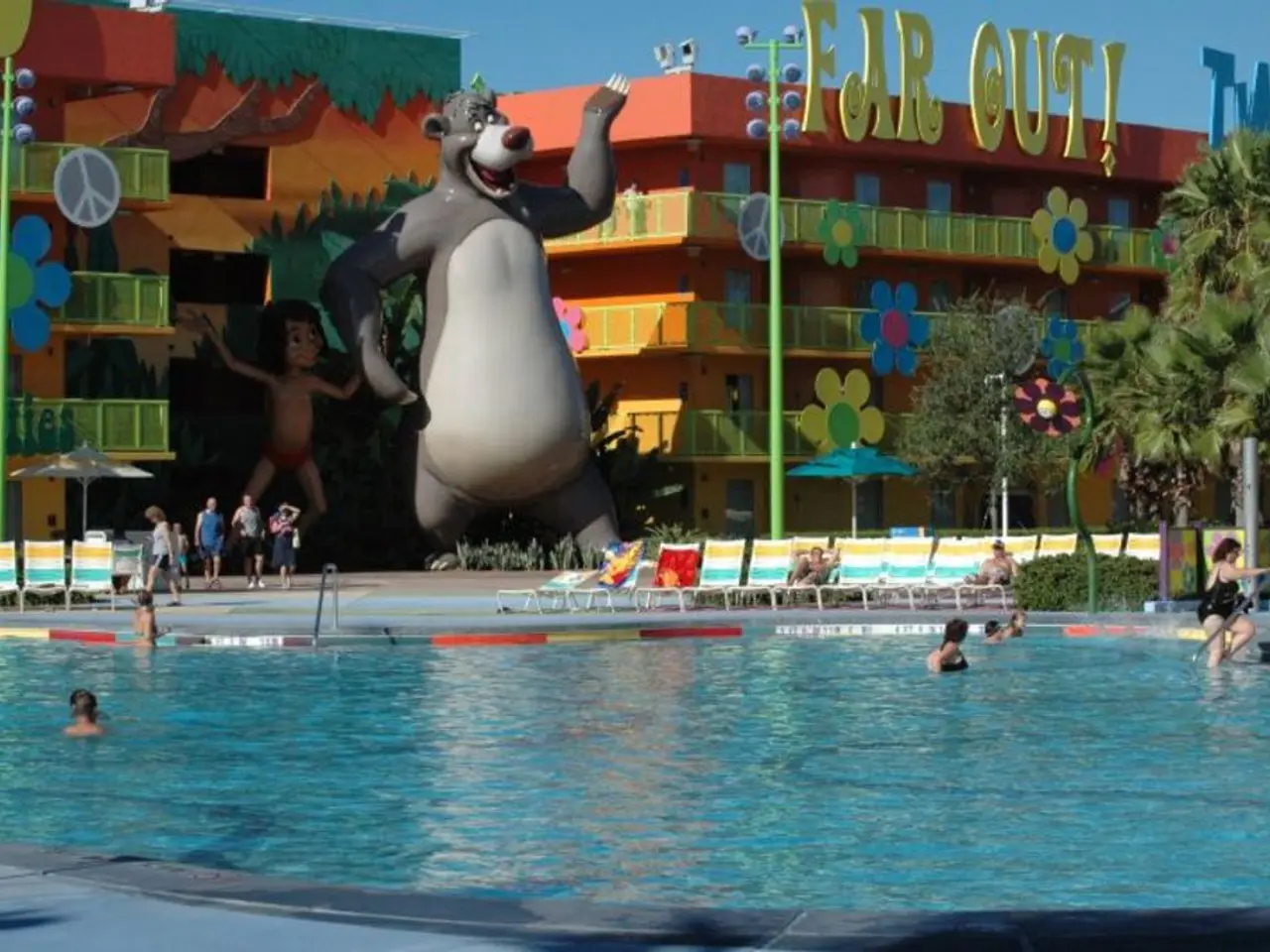Struggle over Berlin's open-air swimming centers
In the heart of Berlin, a change is underway that has sparked controversy among locals. The city's outdoor public swimming pools, a cherished summer tradition for many, will no longer be heated due to budget cuts and the loss of a €3 million state subsidy for heating costs.
The Berliner Bäder-Betriebe (BBB), the largest public pool operator in Europe, announced this decision in March, aiming to save €300,000-500,000. The majority of the 14 outdoor pools will no longer be kept at the usual temperature of 22°C.
The public reaction has been largely negative, with concerns about accessibility and safety. Older people and children are particularly affected, as unheated pools become less usable and pose risks such as hypothermia. Regular swimmers have also complained that the cooler water temperatures make workouts hazardous.
A petition opposing the decision gathered over 3,000 signatures, and there is concern about the impact on swimming education, given that a significant share of Berlin’s third-grade children do not know how to swim.
Local representative Ferat Koçak from Die Linke views the pools as a class issue, stating that people who can't afford holidays abroad need accessible public spaces. Sophie Springer, a 44-year-old native Berliner, believes the swimming pool issue goes beyond temperatures and ticket prices, comparing the current state of Berlin's pools to living in London during austerity culture.
The BBB has implemented measures such as ID requirements, online ticketing, video surveillance, extra security personnel, bag checks via metal scanners, and body cams for guards at the pools. These measures, however, have been met with criticism, with the citizens' initiative Freibad für Alle complaining about alleged incidents of racism in denying entry to young swimmers.
The entry price for a Freibad day pass has increased from €5.50 to €6-€7, and the Senate plans to invest €370 million in pools over the next five years for new construction and renovation. After public backlash, Senator for Sport Iris Spranger announced that four pools would be heated again, but the Senate did not commit to reversing the heating and pricing changes when city belts are less tight.
Local musician Klaus Blume expressed his frustration over the cold water temperatures in an original song posted on his YouTube channel, titled "The Unheated Pools of Berlin." The song resonated with many Berliners, reflecting the city's collective sentiment towards the changes in their beloved swimming pools.
Despite the challenges, some pool-goers, like Brigitte Pieck, 79, and Ralf Wendling of Wilmersdorf, have expressed concerns about safety issues due to the cold water. They, along with many others, hope for a solution that maintains the accessibility and safety of Berlin's outdoor swimming pools for all.
[1] Source: Berliner Morgenpost, May 25, 2025.
- The heated outdoor swimming pools, a traditional summer attraction in Berlin, have become unheated due to budget cuts, causing concern for public safety, particularly for older people, children, and regular swimmers.
- The controversial decision to stop heating the pools has prompted a petition with over 3,000 signatures, raising concerns about accessibility and the impact on swimming education for Berlin’s third-graders who may not know how to swim.
- Despite the implementation of measures such as ID requirements, online ticketing, and bag checks, there have been complaints of racism in denying entry to young swimmers.
- In an attempt to address the public backlash, the Senate has announced that four pools will be heated again, but no commitment has been made to reverse the heating and pricing changes when city belts are less tight, causing frustration among pool-goers like Brigitte Pieck and Ralf Wendling.






